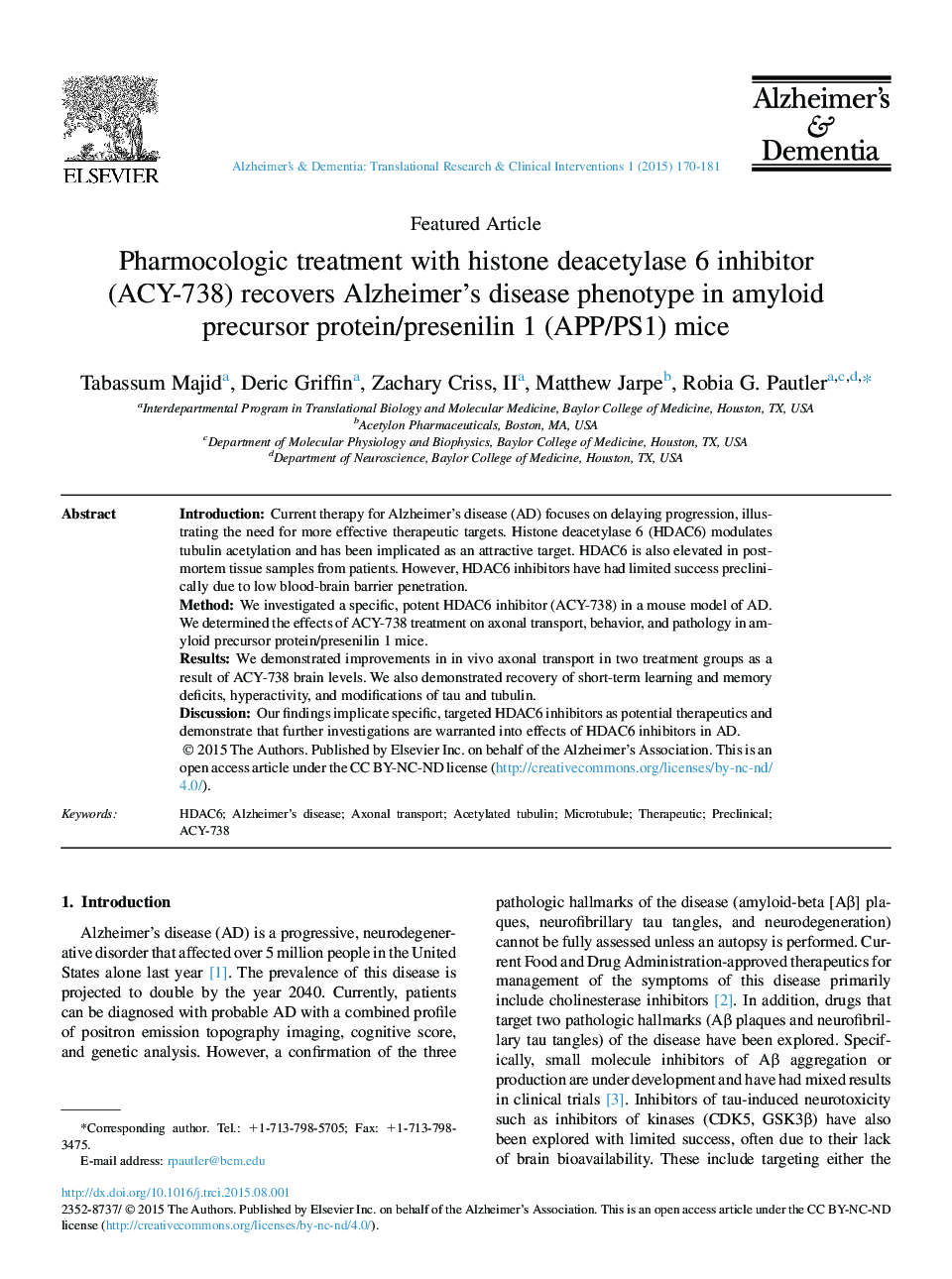| Article ID | Journal | Published Year | Pages | File Type |
|---|---|---|---|---|
| 3032112 | Alzheimer's & Dementia: Translational Research & Clinical Interventions | 2015 | 12 Pages |
IntroductionCurrent therapy for Alzheimer's disease (AD) focuses on delaying progression, illustrating the need for more effective therapeutic targets. Histone deacetylase 6 (HDAC6) modulates tubulin acetylation and has been implicated as an attractive target. HDAC6 is also elevated in postmortem tissue samples from patients. However, HDAC6 inhibitors have had limited success preclinically due to low blood-brain barrier penetration.MethodWe investigated a specific, potent HDAC6 inhibitor (ACY-738) in a mouse model of AD. We determined the effects of ACY-738 treatment on axonal transport, behavior, and pathology in amyloid precursor protein/presenilin 1 mice.ResultsWe demonstrated improvements in in vivo axonal transport in two treatment groups as a result of ACY-738 brain levels. We also demonstrated recovery of short-term learning and memory deficits, hyperactivity, and modifications of tau and tubulin.DiscussionOur findings implicate specific, targeted HDAC6 inhibitors as potential therapeutics and demonstrate that further investigations are warranted into effects of HDAC6 inhibitors in AD.
